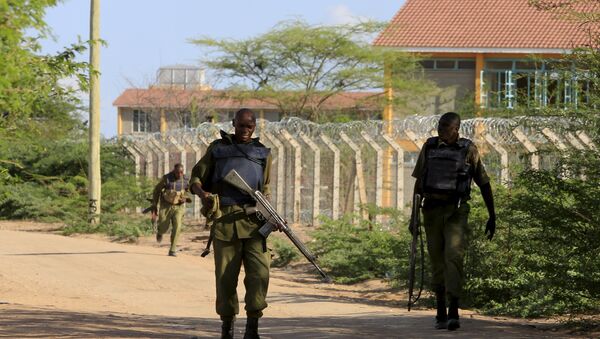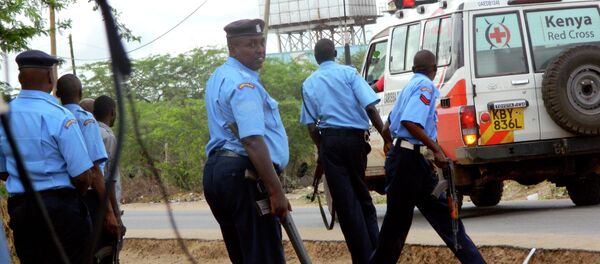WASHINGTON (Sputnik) — Thursday’s terror attack on Garissa, Kenya University College by Al-Shabaab militants highlighted the inability of the Kenyan government to protect the population in the country’s northern areas, Amnesty International’s Regional Director Muthoni Wanyeki said in a statement.
“Citizens and public servants in the north have repeatedly expressed fears about their vulnerability to Al-Shabaab attacks which the Kenyan government has failed to appropriately address,” Wanyeki said on Thursday.
Amnesty International urged the Kenyan authorities to conduct a prompt, impartial and effective investigation of the attack.
Earlier it was reported that the attack claimed 147 lives, including four attackers, making it the worst terrorist attack in the country since the 1998 bombing of the American Embassy in Nairobi.
Kenya’s authorities have reportedly offered a reward of $215,000 for any information that will lead to the capture of the main suspect Mohamed Kuno.
Kuno, also known as Sheikh Mohamed, is the leader of Al-Shabaab’s forces in the Juba Region of Somalia on the border with Kenya.
Al-Shabaab, a clan-based militant group linked to the international terrorist organization al-Qaeda, violently took over most of Southern Somalia in 2006. Al-Shabaab then expanded its insurgency while carrying out frequent gunfire and suicide attacks.
In 2011, Kenya declared war on Al-Shabaab after a series of kidnappings by the group. Since, Al-Shabaab has committed numerous terror attacks in Kenya's northeast.



